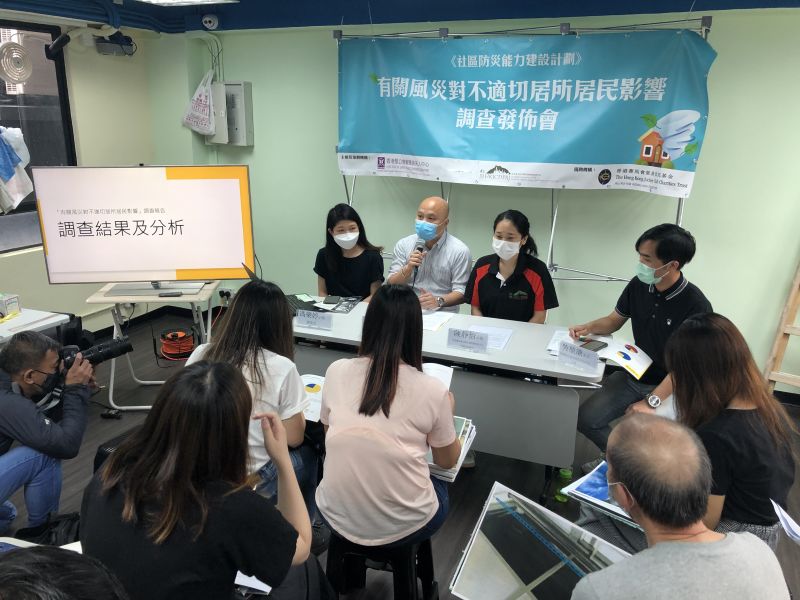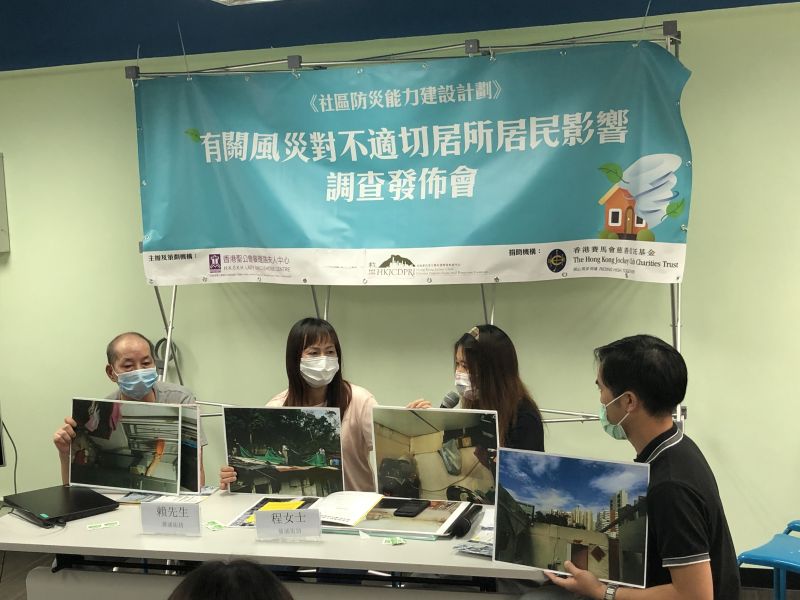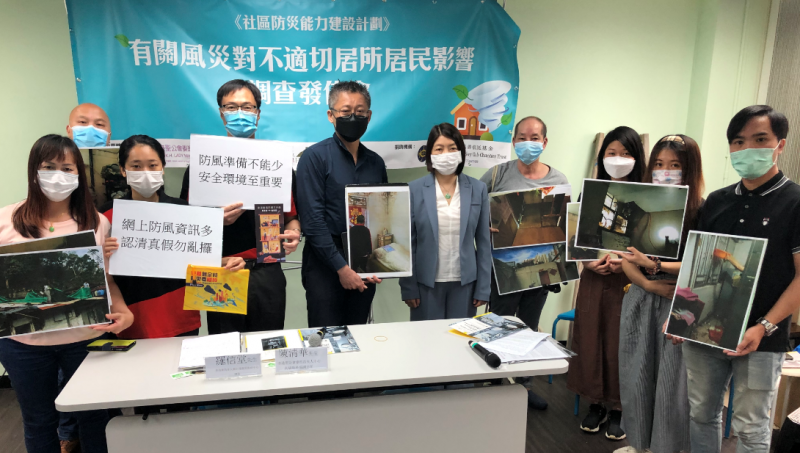You are here
Press conference on the results of the “Typhoon Impact on Subdivided Flat Residents Survey”, May 24 2020
Press conference on the results of the “Typhoon Impact on Subdivided Flat Residents Survey”, May 24 2020
Ms. Audrey Chan, Manager (Community Engagement),The Hong Kong Jockey Club Disaster Preparedness and Response Institute (HKJCDPRI) opened the press conference with a brief introduction about the “<More Knowledge, Less Risk> Disaster Resilience Campaign”. It was highlighted that the survey is part of the Campaign which is jointly developed by HKJCDPRI and the Integrative Family & Community Service of HKSKH Lady MacLehose Centre. Ms. Danica Fung, Programme Officer and Dr. Lai Wong, Researcher then went on to present data analysis and findings of the “Typhoon Impact on Subdivided Flat Residents Survey”.
A key finding from the survey was that almost 80% (76.7%) of respondents consider themselves “qualified” (scoring 5 points or above) in terms of “Typhoon preparedness”. However, more than 60% (64.4%) said the building in which they live have been impacted by a typhoon, with problems covering blocked drainage, power outage, fire hazards in power sockets, etc. No more than 20% (19.2%) did set aside some drinking water and flashlights before a typhoon. This reflects a misconception among residents about “typhoon preparedness,” and a lack of action to protect themselves and their families with precautionary measures.
Two residents from Kwai Tsing district were present at the conference to share their experience of the damages and inconvenience brought by super typhoon Mangkhut in 2018.
In response to the findings, Mr. Johnson Lo, Director, HKJCDPRI and Mr. Kenny Ng, Team Leader, Integrative Family & Community Service HKSKH Lady MacLehose Centre shared recommendations for action at government policy, community and individual levels. They pointed out that community stakeholders (government departments, NGOs, civil groups, schools, etc.) could, within the means of existing resources, draw up disaster prevention plans against hazard risks already identified in the community. Actions could be taken by spelling out the role of individual stakeholders in the event of disasters, planning evacuation routes, stepping up inspection on vulnerable areas, and running disaster drills – in order to build resilient communities that are empowered with “Preparedness, Response, Recovery and Mitigation”, the abilities to manage and go through the four stages of a disaster.
Mr. Lo also encouraged members of the public to equip themselves with appropriate precautionary measures against disasters, by referring to reliable information about preparedness prepared by organisations working on the cause. For example, HKJCDPRI has published the "Typhoon Preparedness: 3 Important Steps" Brochure which offers practical tips to minimise impacts from typhoons.
In closing the conference, Mr. Jonathan Chan, Senior Service Coordinator, Integrative Family & Community Service HKSKH Lady MacLehose Centre reiterated that no one should underestimate the damage from windstorms. It’s better to be prepared rather than sorry.
(From left to right): Ms. Ching; Dr. Lai Wong, Researcher; Ms. Audrey Chan, Manager (Community Engagment), HKJCDPRI; Mr. Johnson Lo, Director, HKJCDPRI; Mr. Jonathan Chan, Senior Service Coordinator, Integrative Family & Community Service HKSKH Lady MacLehose Centre; Ms. Kitty Liu, Charities Manager, The Hong Kong Jockey Club Charities Trust; Mr. Lai; Ms. Danica Fung, Programme Officer; Mr. Kenny Ng, Team Leader, Integrative Family & Community Service HKSKH Lady MacLehose Centre
Press here to read the "Typhoon Impact on Subdivided Flat Residents Survey" (Chinese only).









